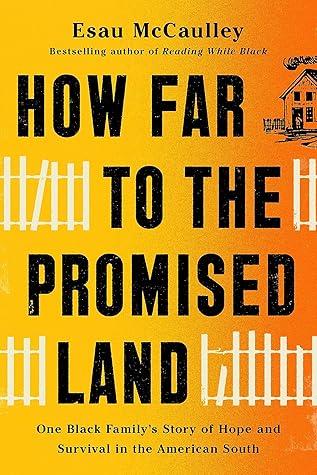More on this book
Community
Kindle Notes & Highlights
Read between
February 19 - February 24, 2025
People are always more than the bad decisions they make. As long as we draw breath, there is always a chance to start anew. That is the central teaching of Christianity. God gave us grace when we did not deserve it; that grace is a power that seeps out into every aspect of our lives.
Marriage is a collision of two people’s dreams, dysfunctions, histories, and hopes. It always involves a form of letting go and making space. But out of those sacrifices, sometimes something glorious emerges.
My marriage—and, more broadly, any interracial marriage—is not about racial reconciliation in America; that is too much weight for anyone to bear.
We are not special; we are possible. Ours is like any marriage that lasts. We had to give up enough of ourselves to make room for the other person, but we had to retain a sufficient amount of who we were to avoid bitterness. All marriages become a third thing, neither one partner’s dream nor the other’s, but a different glory, an ordinary one we made together.
I still do not know how to make sense of the combination of kindness and callousness in the same person. But, in truth, the possibility of goodness in those who do evil is not different in principle from the capability of good people to fail us.
Things we separate intellectually into neat categories are messy in real life. My neighborhood, then, could be both dangerous and wonderful at the same time. That is why the idea of grace and forgiveness is so important to me. If we are all a mix of good and bad, then there is always a chance that the good might emerge victorious in the end, if we give God enough time to do his work. Patience with broken people and broken things is a manifestation of trust in God.
Black kids in my neighborhood didn’t need to hear a speech at family gatherings. They needed a different set of circumstances, one in which hope was not so hard to come by. They needed a path through the wilderness to the promised land. But none of us knew the way.
My children’s only visits to Northwest Huntsville have taken place during the holidays. They see me and my siblings when we have abundance and do not know how it contrasts with the deprivations of our childhood. They glimpse only part of my upbringing, the best part of it. But I realize now that I should tell them about the hard times, too, because there is no joy without suffering, and it is both the joy and the suffering that make me who I am.
Years of parenting and marriage taught me that such perfection is beyond all of us. We fail those we love.
Forgiveness is one thing; trusting someone enough to be vulnerable again is a whole different matter.
This is why the Resurrection of Jesus is important for Christians. The point is not that some man, by some odd twist of fate, defeated death. It is about the meaningfulness of life itself. Do our loves and losses and decisions matter, or are they all just a collection of events that end with our passing? Resurrection infuses our lives with meaning. It suggests that who and what we are echoes into eternity. Therefore, it matters who my father was, how he lived, how he died, and what hope we might have for him in the future.
we are not defined by where we come from. We can be anything with the help of God.
As a child, I found it easy to hate him, but the older I got, the more I realized that people are complicated. Humans are more than one thing. My father was not just a villain; he was a victim. He hurt, in part, because others hurt him, especially his own father.
Christians like to believe that our faith is about people who convert and immediately change their lives. We envision flawless good citizens with well-mown lawns and perfectly behaved children. But life is hard. The road is long and winding, and the path to the promised land is not always clear. Nonetheless, hard lives are beautiful in their own way. Wanderings are instructive in their own right.
Sometimes our victory does not come through the glory of the lives that we live, but in the victory of Christ himself over death. God’s ability to redeem broken things gives my father’s life meaning.
For a long time, all I could see were the sad parts. It took me a long time to see where God was in any of it. But I found him in my story, and the good news is that my father did, too.


